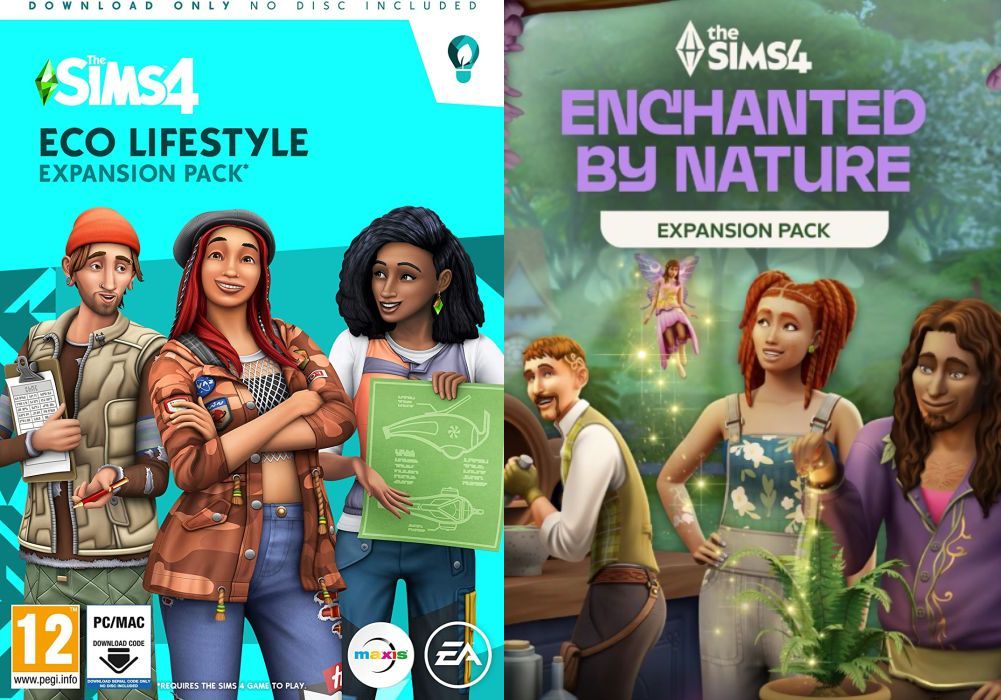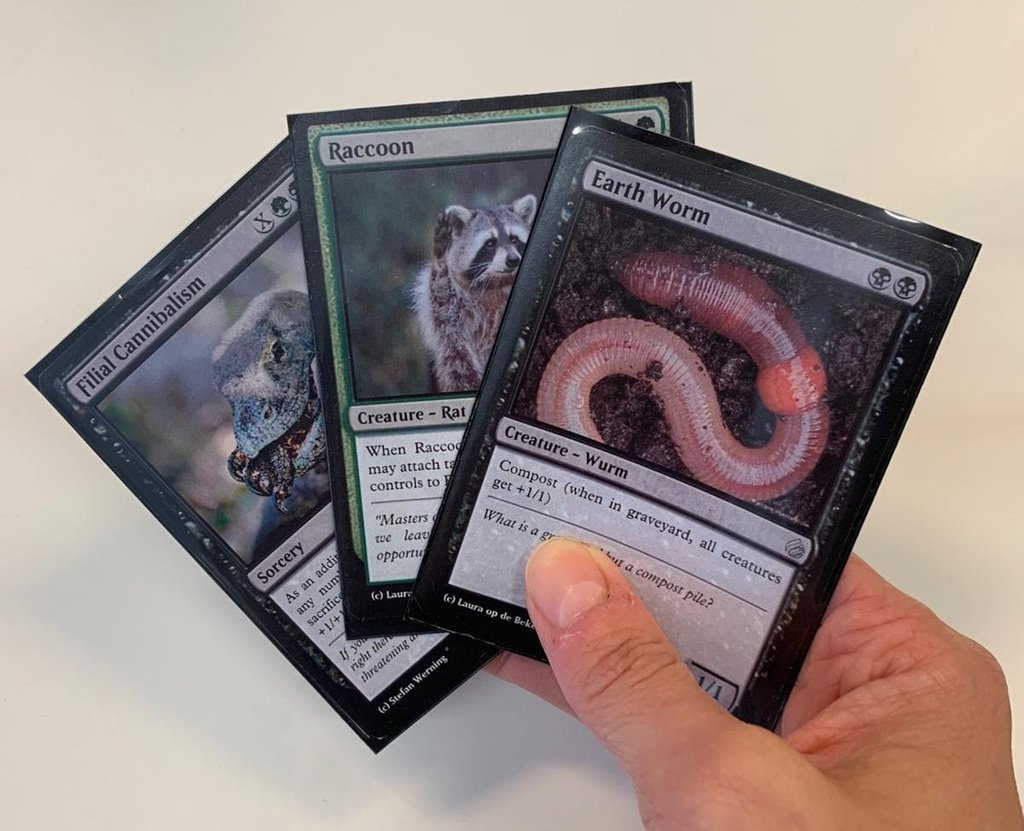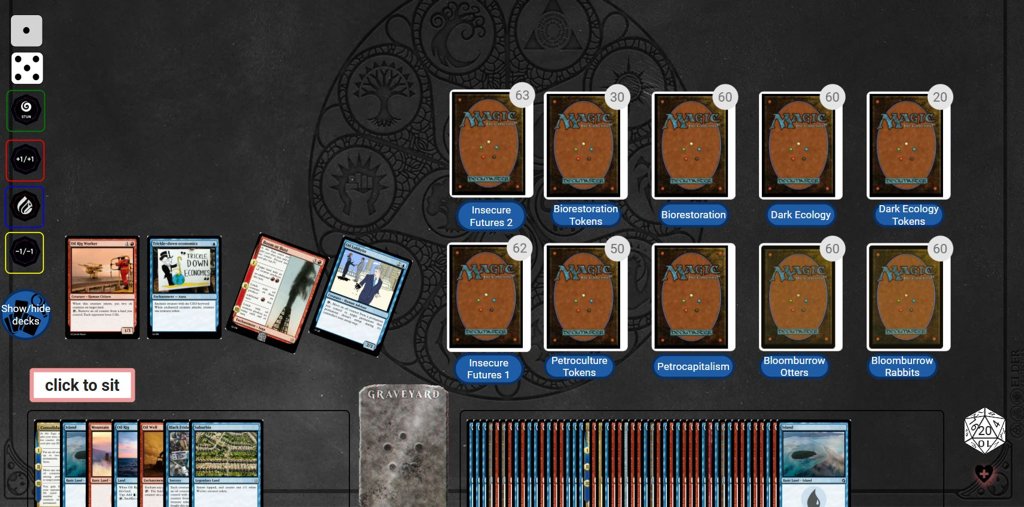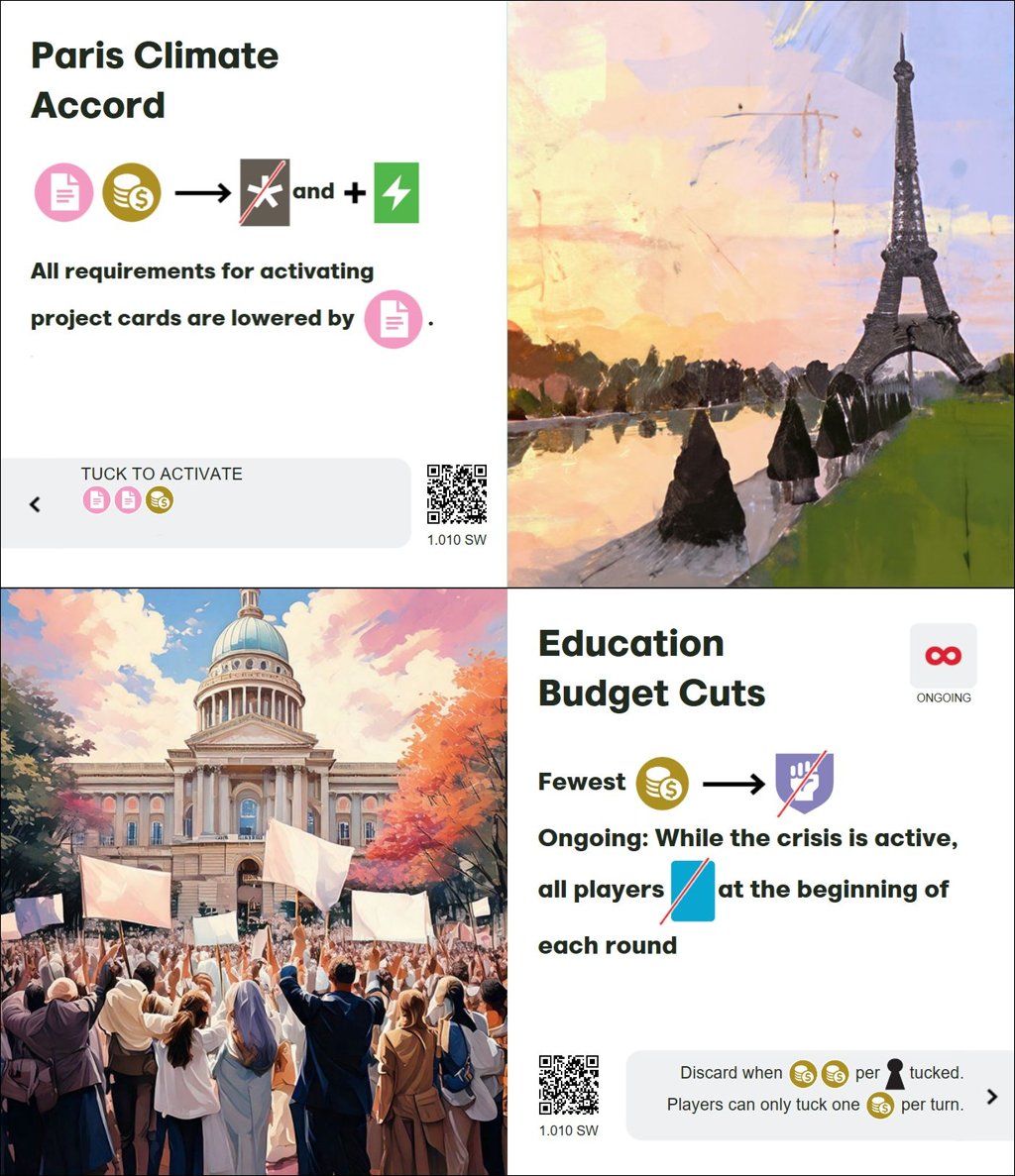Popular media and games in particular are increasingly gaining attention for their potential to shape sustainable future imaginaries and engage players and player communities with environmental concerns. Both digital and analogue entertainment games are increasingly designed to reflect environmental sensibilities; for example, video games like Beecarbonize (2023) and Terra Nil (both 2023) allow players to explore planet, while board games like Daybreak (2023) require players to cooperate to formulate global climate policies and improve their countries’ ecological and societal resilience.

Figure 1: The Sims 4 expansions Eco Lifestyle (2020) and Enchanted by Nature (2025)
However, scholars like Benjamin Abraham caution that the persuasive potential of these ‘ecogames’ and their capacity to make the climate crisis personally relatable might be limited, as it is an intrinsically ideological subject matter and games-as-models cannot reflect the multiplicity of player experiences and expectations.

Figure 2: Custom-designed Magic: The Gathering cards thematizing 'dark ecology'
Therefore, Abraham argues for an ‘interaction’ model of climate communication that would allow players to ‘speak back’ through game design. For that purpose, so-called game ‘franchises’ – i.e. fictional worlds and game systems like The Sims that develop long-term, persistent fandoms beyond a single game – can be particularly fruitful and, like individual ecogames, these franchises are also beginning to respond to environmental concerns (see figure 1). Rather than focusing exclusively on play, we explore how ‘hacking’ game franchises can facilitate a productive, interdisciplinary dialogue on climate futures based on fandom as a shared ‘affinity space’ (James Paul Gee). Specifically, we utilize Magic: The Gathering (MTG), a card game franchise that has been actively played for more than 30 years, to facilitate transdisciplinary collaboration and education. Via a simple workflow based on freely accessible web-based tools, participants can not only play with custom-designed card decks addressing various environmental topics but also practice grassroots regenerative game design as a ‘shared procedural language’.

Figure 3: Digital prototype of the custom MTG decks
Decks created thus far explore ecosystemic interactions, matters of ‘dark ecology’ and the logic of petro-capitalism. They can be printed for physical play (see figure 2) or used via a browser-based digital prototype (see figure 3). Moreover, and most importantly, players can use a Google Sheet to collaboratively research, brainstorm and create new card designs or variations of existing cards that can be added to the game. Thereby, procedural representations of complex topics like the link between petro-culture and consumerism are opened up to critical deliberation, which allows for players with different personal and professional backgrounds to express their own viewpoint rather than just ‘playing by the rules’. The workflow will be publicly available and is currently extended to include other analogue game franchises like Daybreak (see figure 4) or UNO to reach different types of audiences and tackle different perspectives on our thriving planet as well as the developments that threaten its habitability.

Figure 4: Custom cards for the board game Daybreak
